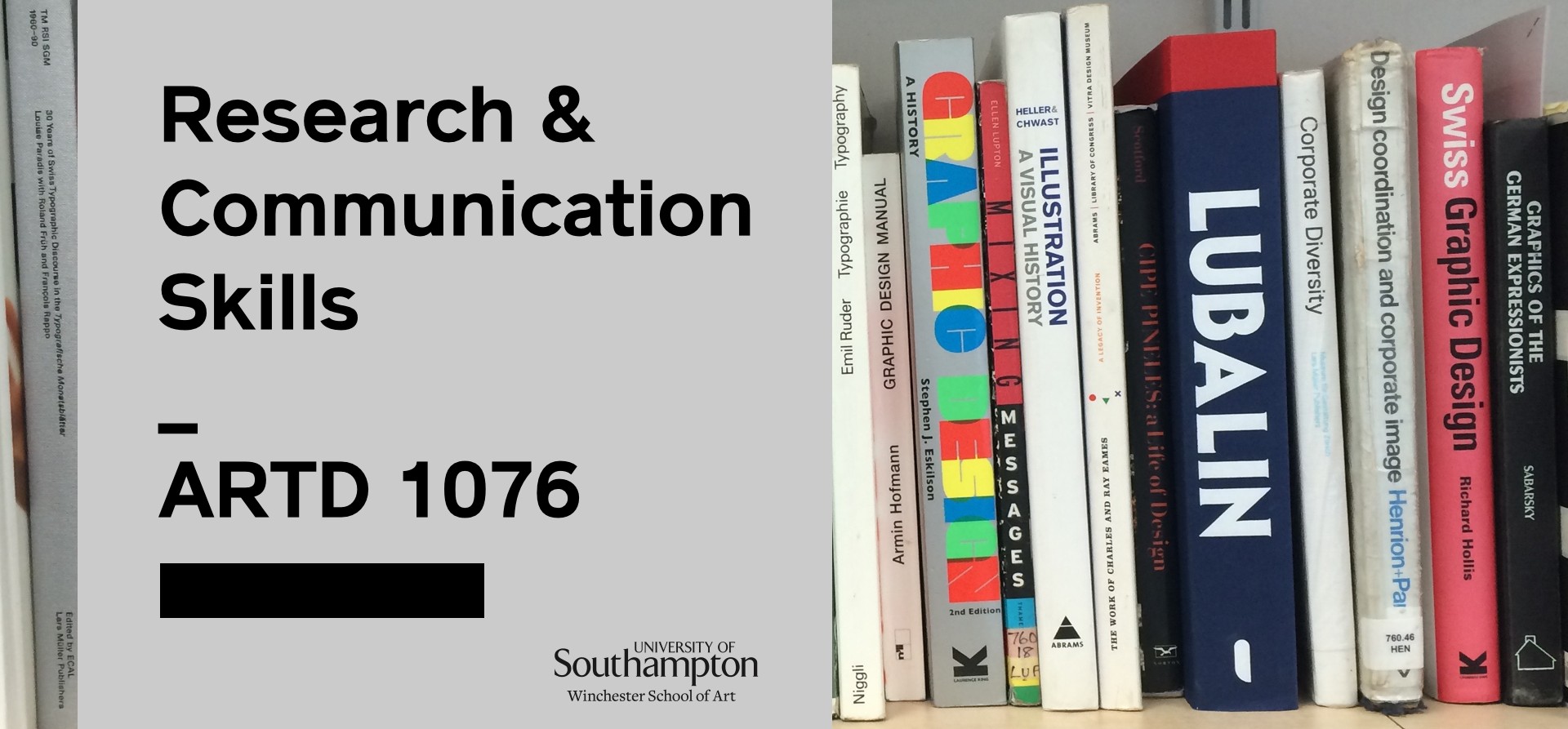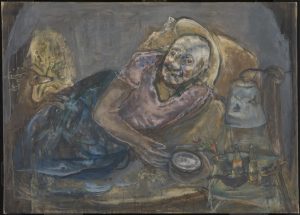Exploring The Tate Liverpool I came across a painting created in 1975 titled ‘From Night into Day’ by the artist ‘Marie-Louise Von Motesiczky’. Immediately I was sucked in by this disturbing looking figure, I felt as though her eyes were on me forcing me to come closer. I don’t remember exactly how long I stood in front of this work but I felt I couldn’t take my eyes off of it, something about it made me want to study it further.
The lady is lying on the bed and seemingly knows that you are watching her as she looks right back at you, however it is so intrusive viewing her in this way like looking through her bedroom window. And when you notice the deer with its front legs resting on her you begin to wonder if this has been taken from some sort of fairy tale. Proportions aren’t accurate so her bed seems very short and to almost be tilting her out of it, which made me think that maybe this work had been drawn from memory or imagination rather than life. Muddy brown paint has been applied as an underlying colour with the figure and objects in the room painted on top which seem to lack clarity. I believe this makes it obvious that the work was created through memory rather than observation, looking at her body some areas are flat particularly her lower half. It seems the artist spent more time on the face as it stands out from the rest of the painting.
Along with information available to the gallery and research, I discovered that this work is of the artists mother who was aged 93. She lies in bed struggling to sleep and often would lie awake at night. The artist chose not to sit and paint her mother but instead incorporated memory along with small amounts of observation. I don’t believe viewing an image of the painting can quite match the whole experience of discovering it in the flesh, it doesn’t allow the viewer a true representation of the scale or emotion conjured up by the work.

